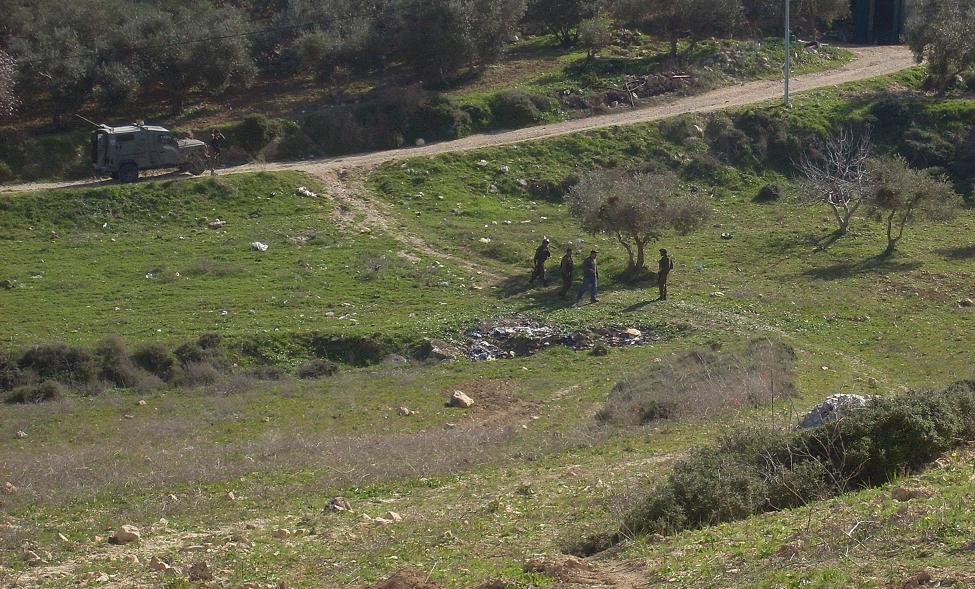Category: Journals
-
Big punishments for small hopes
by Haroun Zeitoun 26 January 2013 | International Solidarity Movement, Burin, Occupied Palestine This morning in Burin, the village that sits in the valley between the Yizhar and Bracha colonial settlements just south of Nablus, saw a small yet high-spirited group plant olive trees. The task was done within an hour and afterwards international activists…
-
The broken truce
21 January 2013 | GazaStories, Beit Lahiya, Gaza Strip, Occupied Palestine A ceasefire was announced on 21st November, ending eight days of horrific bloodshed in Gaza. Has the delicate truce held over the past two months? It depends who you ask. Israelis or Gazans, each going about their daily lives on opposite sides of a…
-
The long road to Bab al-Karama
20 January 2013 | International Solidarity Movement, Bab al-Karama, Occupied Palestine The road to Bab al-Karama, the new tent neighborhood created by Palestinians on land that will be separated from the village of Beit Iksa by the Apartheid wall, exposes a landscape of Apartheid. To reach Bab al-Karama from Occupied Ramallah one needs to take…


